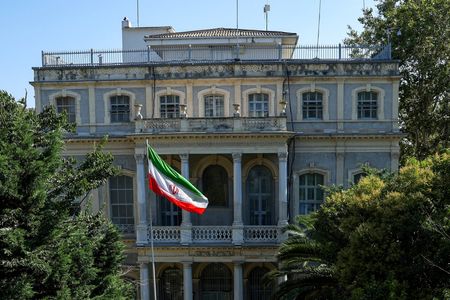By Marc Jones
LONDON (Reuters) -Romania is readying some end-of-year bond sales and buybacks now the political upheaval that had engulfed the country – and still hangs over its investment grade credit rating – looks to have settled.
Romania is grappling with the European Union’s largest fiscal deficit and has been squarely in the spotlight this year after its drama-filled presidential election crashed its currency.
With a pro-EU coalition now in place and 17 billion euros ($20 billion) of debt already borrowed via various channels this year, its debt office is finalising a “liability management” exercise and yen-denominated green bond to round off the year.
The plan is to replace a chunk of the 4.25 billion euros worth of euro-denominated bonds Romania has coming due next year with longer-term ones, while the “samurai” bond, as yen debt is also known, will help build up its investor base in Japan.
“The numbers will depend on the market, what the demand will be for the new issue and what the demand for the buyback will be,” the head of the debt agency, Stefan Nanu, told Reuters during a trip to London.
The liability management plan would result in some “net new issuance”, Nanu added. “All options” were open, from a tranche of new bonds with different maturities to a straightforward enlargement, or “tap” of some of its existing bonds.
It is also starting to think about next year. While much will depend on what the still-to-be-announced 2026 budget looks like, a new “derivatives framework” due to be introduced means it is also considering dollar-denominated bonds and maybe one or two in currencies it has never issued in before.
WINDOW OF OPPORTUNITY
Romania’s deficit has made it one of the biggest emerging market debt issuers in the world in recent years, but Nanu does not see any sign of waning investor demand at the moment.
The government wants to cut the deficit towards 6% of GDP next year, from what is likely to be more than 8% this year. However, the four parties in the new ruling coalition have not agreed how to do it and protests are growing.
It also means pressure remains on the country’s sovereign credit rating, which is on the lowest rung of “investment grade” and a “negative outlook” – effectively a downgrade warning.
Analysts say new Prime Minister Ilie Bolojan, who under a rotational arrangement will head centrist President Nicusor Dan’s government until 2027, now has to deliver on tax hikes and spending cuts and fast.
“The window (for fiscal repair work) is clear, this year and next year,” Nanu said.
($1 = 0.8514 euros)
(Additional reporting by Luiza Ilie in Bucharest; Editing by Alex Richardson)











